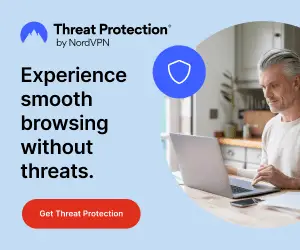Company-Wide Cybersecurity: Why And How To Implement A Successful One
Most modern companies now adopt new technologies to streamline their operations. This also helps them maintain their competitive edge in the market.
However, as these organizations use up-to-date technologies, they’re vulnerable to cyber threats like malware, data breach, and phishing. These attacks cause severe damage to a company’s reputation, financial resources, operations, and so on. Further, organizations that experience security breaches tend to lose consumers’ confidence.
With this in mind, business owners like you must invest in cybersecurity through the help of experts like ShipshapeIT Cybersecurity. This protects your company data from malicious threats. In addition, having a sound company-wide cybersecurity protocol helps you maintain the integrity of your brand image and consumer trust in your products and services.

The following is a guide on the importance of company-wide cybersecurity and how to successfully implement it in your workplace:
Importance Of Cybersecurity In Businesses
Cyber-attacks are rampant, especially as hackers get more daring and attacks become more sophisticated. They’ve become so common that businesses have started to accept and work with the reality of the risks of a cyber-attack. A recent report shows that a large number of executives polled say that their companies’ finance and accounting teams collaborate closely with their cybersecurity departments.
As these organizations continue to defend their data from cyber threats, they gain advantages, such as:
- Companies Are Shielded Against Reputational Damage
Businesses store sensitive customer information, such as credit cards or social security numbers. If these pieces of data fall into the hands of a hacker, they use them to harass or blackmail the consumers.
Once this happens, the company becomes liable for the damages and losses that result from this type of incident. For instance, research reveals that almost half of the consumer participants turned away from companies with privacy concerns, leading to a significant loss in revenue.
But by working with cybersecurity experts, companies can minimize these risks and protect themselves against reputational damage. In other words, their consumers will trust the organization with their sensitive data and even be loyal to them.
- Reduced Website Downtime
A company’s website is home to e-commerce brands as it facilitates selling goods and services. Aside from that, this is where companies store information regarding their customers, like contact details and billing information.
Hackers can steal store-related data and use it for identity theft if they get access to business websites. Similarly, they cause denial-of-service (DoS) attacks, resulting in downtime. When this happens, businesses lose customers and revenue. Yet with cybersecurity practices like password audits and vulnerability scanning, they can keep the website secured and up and running.
- Compliance With Data Privacy Regulations
Strict data privacy regulations require companies to keep track of their users’ personal information and maintain a certain level of security in the name of data protection. Hence, big and small businesses must stay on top and adopt the latest cybersecurity trends and technology to comply with stringent data privacy rules and regulations. This involves having a comprehensive cybersecurity program, including an accurate security audit and ongoing training.
How To Successfully Implement Company-Wide Cybersecurity
To reap the benefits of a robust company-wide cybersecurity infrastructure, you must have all of your team members on board. This means that your Information Technology (IT) team won’t be the only one responsible for the whole company’s cybersecurity. Make sure that all personnel, including yourself, know the role they play in preventing cyber threats to reduce vulnerabilities. This can be done through consultations, cybersecurity training, and the like.

Further, your team needs to implement the following:
- Enable Two-Factor Authentication
It’s said that most data breach incidents occur because of weak passwords. Research shows that these types of passwords cause a large number of hacking incidents.
But with two-factor authentication (2FA), your company will go beyond password protection. This prevents your company from being a victim of cybercrime. 2FA requires two ways to verify the user’s identity to access an account. The primary purpose of this technology is to prevent third parties from accessing your data with the help of phishing attacks.
You can set up 2FA on the devices throughout the organization so that each worker has a unique code. This protects them against hackers trying to access their accounts without a valid personal identification number (PIN).
- Require VPNs For Remote Employees

If you’re operating a remote workforce, your team members usually use their personal devices to access sensitive business data. This opens the door to possible cyberattacks. Further, suppose they connect to public Wi-Fi while at work; these employees could be vulnerable to hacking.
To avoid such instances, implementing virtual private networks (VPNs) should be required for all employees, especially those working remotely. These allow employees to securely access corporate resources from anywhere in the world through an encrypted tunnel over the web.
- Build A Data Disaster Recovery Plan
There are instances when an employee accidentally deletes data from their device. For example, the file might contain customer information or intellectual property. This means this loss is beyond repair if you don’t have a data backup.
In such a case, you need a data disaster recovery plan to mitigate this risk. This includes addressing risks like natural disasters, data loss, site-wide outages, or server failure. You’ll also indicate disaster response procedures, such as having multiple data backups or offsite storage in case of data-related accidents.
With a well-thought-out data disaster recovery plan, your company is ready to handle any data crisis it may encounter, all the while maintaining productivity in operations.

Key Takeaway
It’s said that many hackers today are becoming more strategic in illegally accessing and stealing confidential information. And most of their targets are companies with system cybersecurity vulnerabilities.
Protect your business from cyberattacks by having comprehensive and company-wide cybersecurity. The responsibility to fight against malicious cyber-attacks doesn’t solely lie within your IT team. Everyone must do their part, from the administrators down to the customer service team members. Check out the guide featured above to help you figure out the steps in implementing company-wide cybersecurity and why it’s beneficial to have one.






